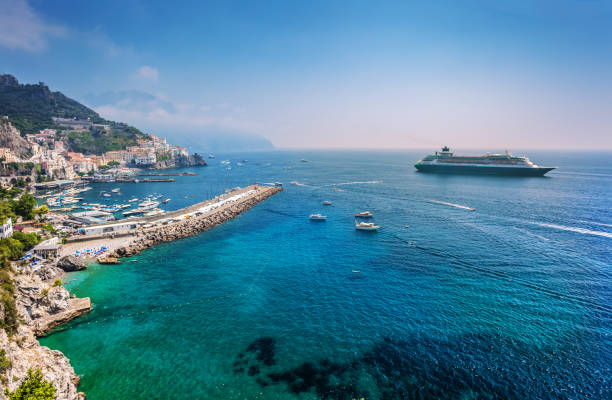The Unseen Facets of Maritime Law: A Closer Look at the Laws of the Sea
Introduction: Maritime law, also known as admiralty law, is a body of laws, treaties, and conventions that govern private maritime business and other nautical matters. This article will delve into the unseen facets of maritime law, providing a comprehensive understanding of its historical evolution, recent developments, and societal implications.

A Voyage Through History
Maritime law has a rich history, tracing back to the ancient Greeks and Romans who established basic laws regarding shipping and commerce. In the Middle Ages, maritime laws evolved into a more structured system, with the Laws of Oleron and the Hanseatic League playing significant roles. Further development occurred in the 17th and 18th centuries, as nations sought to protect their maritime interests.
Modern Maritime Law: The United Nations Convention on the Law of the Sea
The United Nations Convention on the Law of the Sea (UNCLOS), adopted in 1982, is a key milestone in modern maritime law. It defines the rights and responsibilities of nations concerning the use of the world’s oceans, establishing guidelines for business, the environment, and marine natural resources.
Navigating Recent Developments
Maritime law is not static; it evolves with the changing needs of global commerce and technology. For instance, the advent of autonomous ships has raised new legal and ethical issues, requiring fresh perspectives and regulations. Similarly, piracy, once considered a historical issue, has resurfaced in certain regions, necessitating renewed legal approaches.
The Societal Ripples of Maritime Law
Maritime law might seem like a distant concept for those not directly involved in nautical activities, but its implications ripple through society. One area where this is evident is in the realm of environmental protection. Laws governing oil spills, marine pollution, and the disposal of waste at sea have a direct impact on the health of our oceans and, consequently, on global ecosystems.
Understanding the Complexities of Maritime Law
Maritime law is a complex field, intricately connected to international relations, commerce, and environmental concerns. Its complexities are further amplified by the fact that the sea is a shared resource, requiring cooperation and mutual agreement among nations. Understanding these complexities is crucial for anyone interested in the intersection of law, commerce, and international relations.
In conclusion, maritime law is a fascinating and multifaceted field of law that extends far beyond the confines of ships and the sea. It is a testament to the power of global cooperation and legal frameworks in managing shared resources and promoting fair and sustainable practices. As the world continues to evolve, so too will maritime law, reflecting changing technologies, societal needs, and environmental concerns.




